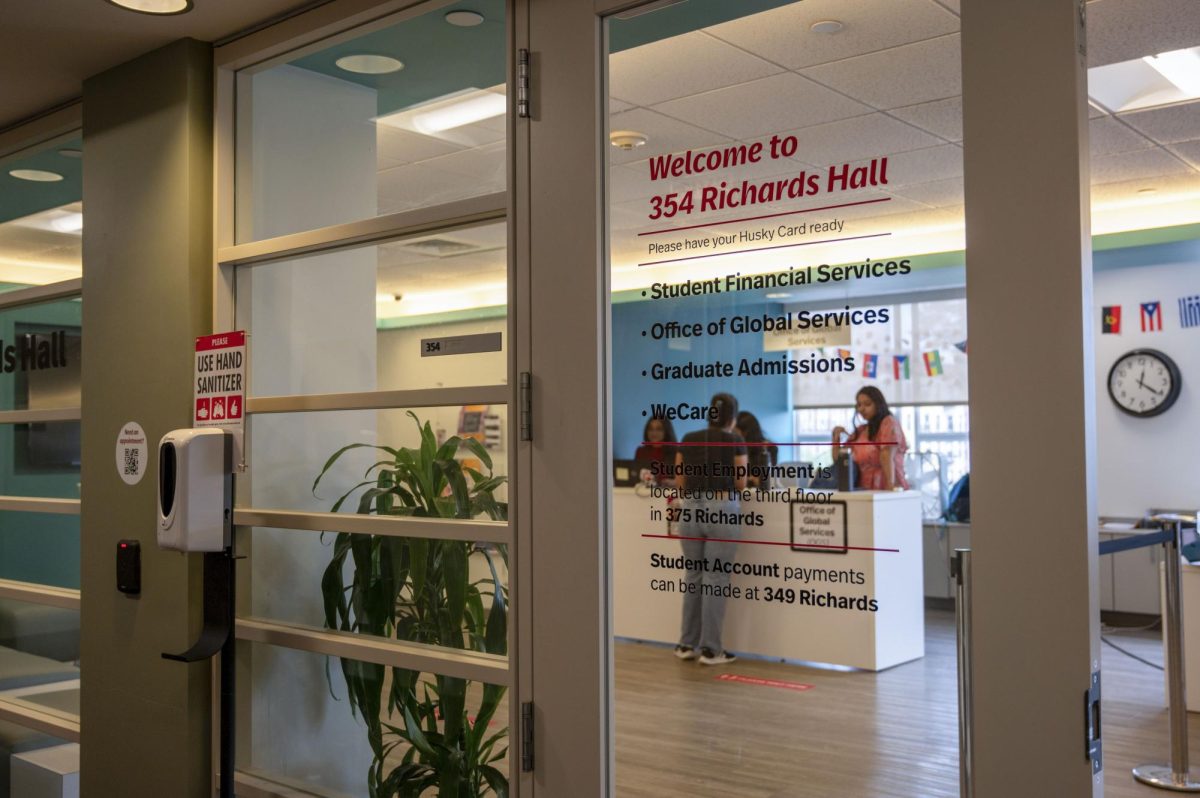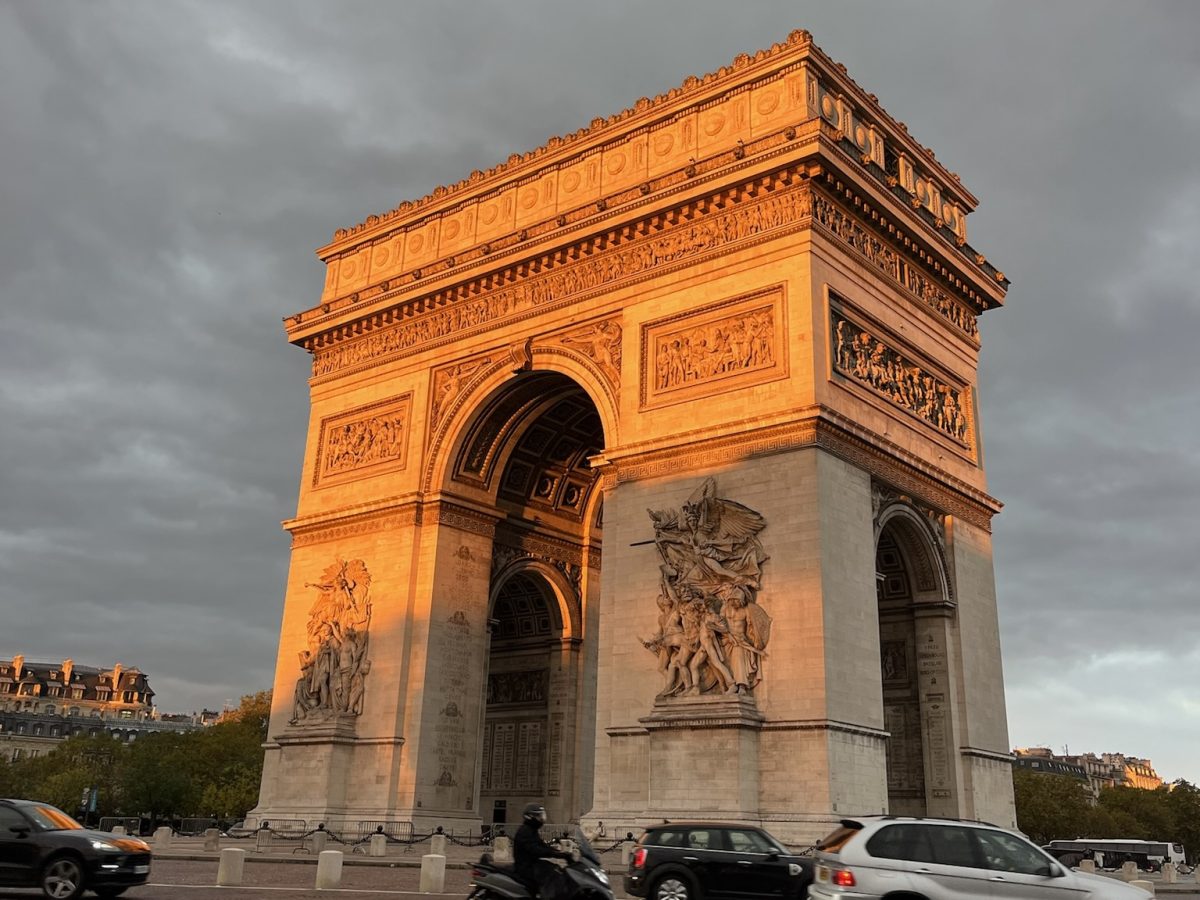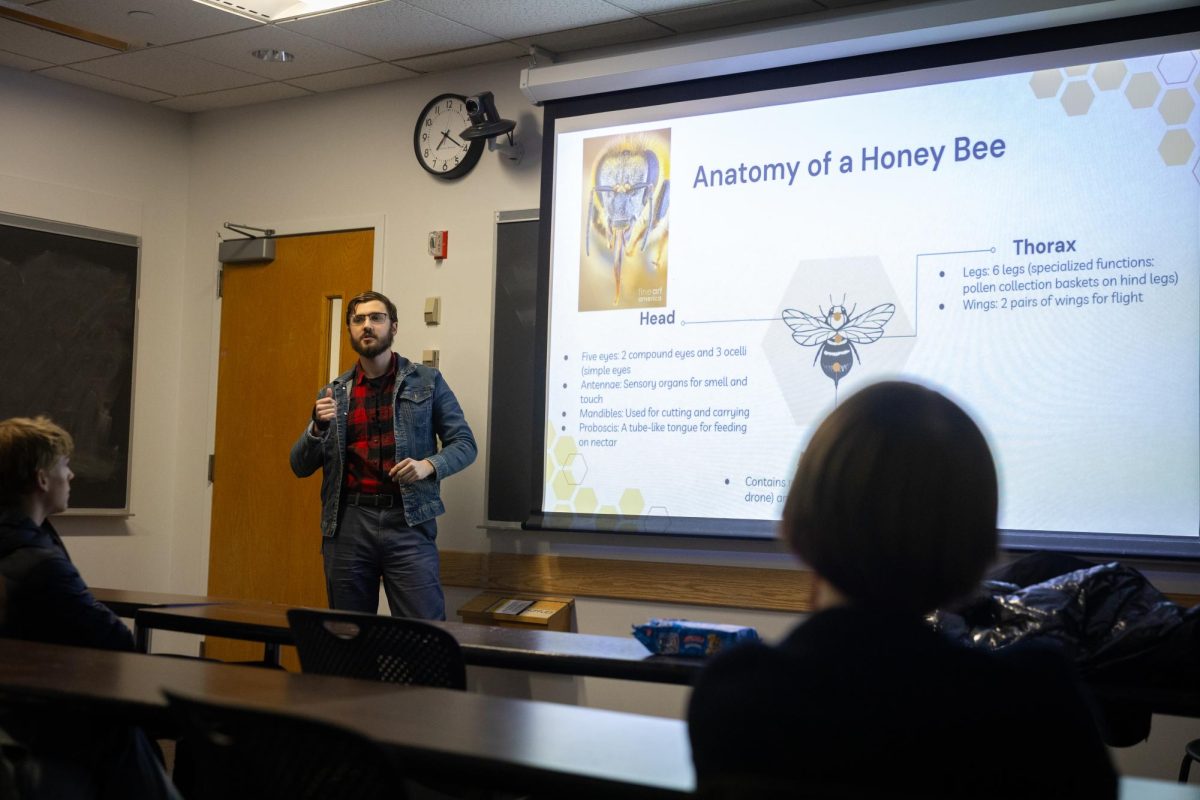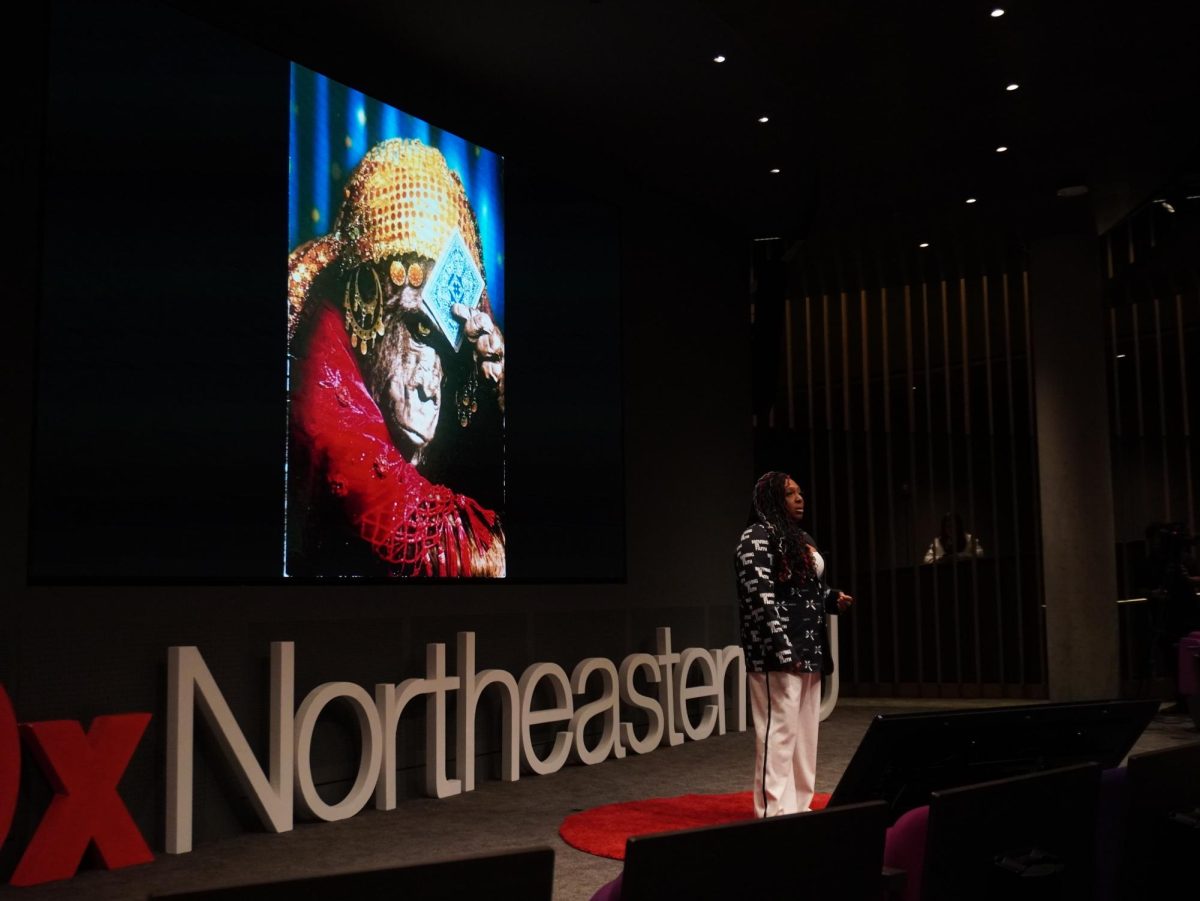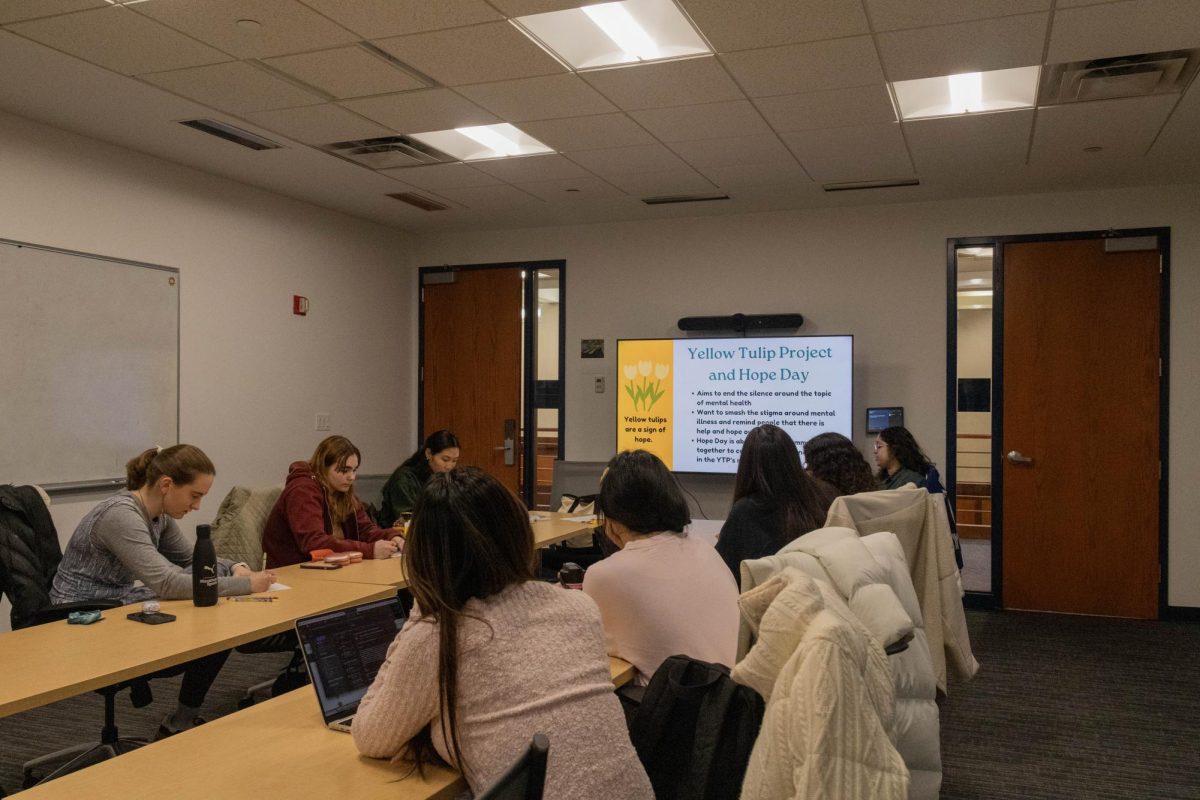
By Taylor Dobbs, News Staff
Michael Trudeau is, in many ways, the average Northeastern senior. He’s working on co-op at the Kostas Research Institute for Homeland Security as he works toward a degree in political science. At 28, though, Trudeau is a little bit older and a lot more experienced than most of those he’ll graduate with in May.
“One story I can tell you is that there’s nothing worse than being underwater and on fire,” he said.
He knows because he’s been there. A five-year veteran of the US Navy, Trudeau has spent weeks at a time under water in the USS Columbus, a nuclear submarine.
“What happened was some guy after mid-watch fell asleep doing his laundry and we had a dryer fire,” Trudeau said.
What would serve as a nightmare for most people ended quickly for Trudeau, who said his training kicked in and he was able to get an extinguisher and put the fire out before it got out of control.
Trudeau was a sonar technician on the Columbus as it patrolled the western Pacific, submerged at one point for 51 days straight.
Trudeau’s big concerns in life sound familiar: Bad professors, group projects and doing well on co-op.
Trudeau is the president of Northeastern’s Student Veterans Organization (SVO), which advocates for more than 300 veterans who finished their time in the armed services and came to Northeastern. Across the nation, almost a million veterans are doing the same thing, and with the US finishing two wars in the Middle East, that number has grown.
Matthew Feger, director of development at the SVO’s umbrella organization, Student Veterans of America, said new forms of government assistance combined with two long wars has created the “perfect storm” for many veterans to go from service to school.
The most important development for veterans hoping to get a college education came in 2009. The Post-9/11 G.I. Bill provides up to $18,077.50 per year to students attending private universities such as Northeastern. On top of that, the US Department of Veterans Affairs (VA) matches some financial awards provided to veterans by their university through its Yellow Ribbon program.
Northeastern has one of the best Yellow Ribbon programs in the Boston area, said Andy McCarty, the university’s newly-appointed veteran services specialist. With 252 rewards available offering students the difference between their Post-9/11 G.I. Bill funds and the cost of attending the university, many veterans don’t have to pay anything to get an education.
At Northeastern, 339 student veterans are receiving federal aid through the VA, and other veterans who have used up their aid or haven’t identified themselves remain uncounted. According to statistics from the Department of Veterans Affairs, the Post-9/11 G.I. Bill funds helped pay for college for 555,329 veterans nationally in 2011, up from 365,640 in 2010.
“I encourage everyone in my group to use the Post-9/11 GI bill with the Yellow Ribbon kicker,” Trudeau said. “Northeastern is great about expanding their veterans program, it’s just guys need to come and get it.”
That’s McCarty’s job as Veterans Services Specialist. Starting on Veterans Day, McCarty will be what he describes as a “one-stop shop for any veteran” attending or hoping to attend Northeastern. In addition, McCarty – an Air Force veteran himself – serves as the SVO’s staff adviser from his job within Student Financial Services.
Madeleine Estabrook, associate vice president of student affairs, said the new position is a vital addition to a university with a growing student veteran population.
Estabrook said the university needed a central resource for student veterans, someone “who can deal with the VA, who can help coordinate benefit processing, who understands their perspective because he himself is a veteran and was a student – can help us serve the needs of a growing student population.”
Even with finances taken care of, coming to college from the military has its own set of challenges.
At 25, Lan Kim is in his third semester at Northeastern. A self-described “go-getter,” he’s thriving now. But five years ago as an Army scout in Iraq, Kim experienced his “own personal hell.”
Animated and engaged in most conversations, he seems to be looking far away when he talks about the moments after an Iraqi improvised explosive device (IED) detonated while he was on a patrol. Some Americans didn’t survive the explosion.
“Seeing civilians and seeing bodies and blood,” some strangers, some friends, he said, “it takes a toll on you.”
His support system, including his roommate, an ex-Marine who served just down the street from where Kim was stationed in Iraq, makes it easier for Kim to get out and do things he might not otherwise be comfortable with.
As the hum of treadmills and busy conversation fills the Marino center, where he comes to work out and relieve stress – “my sanctuary,” he calls it – Kim sits totally still.
“It’s difficult to put into words,” he said, “because most people won’t understand it.”
It’s a common refrain among Kim and his peers, the 339 veterans attending Northeastern after finishing their service.
Trudeau said one of the most difficult aspects is the lack of structure in student life.
“The military is very structured and you have people who tell you what to do and you tell people what to do and there’s procedures for everything,” he said. “To turn on the coffee maker, there’s a procedure you follow. There’s a procedure for everything, and not so much with school, so that’s a little bit of a shock.”
As students near finals week, there’s sure to be lots of talk on campus about the magnitude of a test or a paper. As other students fret over their exams and getting a plane ticket home for Christmas, Kim has a different perspective. He doesn’t feel so much pressure, but has difficulty with the many and varying forces in his civilian life, from apartment hunting to deciding where to go to school.
“Believe it or not – a lot of veterans can attest to this – war is very simple,” he said. “The lifestyle is very simple, because the only thing you’re worried about is to do your job and stay alive.”
Northeastern is honoring veterans with a service on Nov. 12 at 2:30 p.m. at the on-campus Veterans Memorial.


